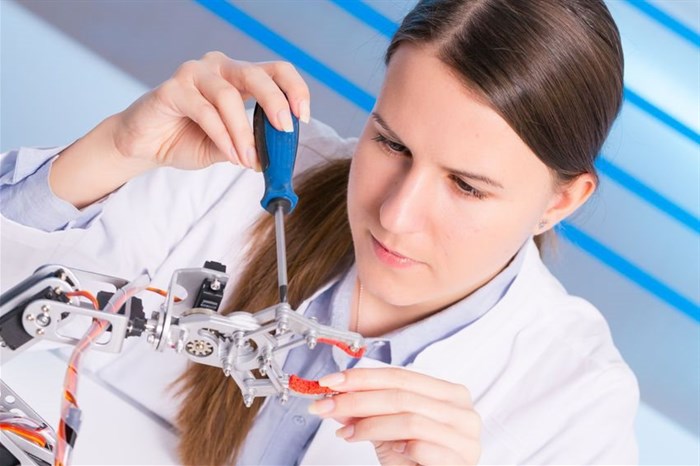South Africa intends to enhance the teaching of robotics and coding in public schools through the establishment of an Artificial Intelligence (AI) Institute.
Minister of Communications and Digital Technologies Khumbudzo Ntshavheni said the AI Institute is being established in partnership with institutions of higher learning, in particular the Johannesburg Business School of the University of Johannesburg and the Tshwane University of Technology, which are co-founder institutions together with the Department of Communications and Digital Technologies.
“It is essential that we invest significantly to provide our youth with access to modern training, skill sets and formal education. To achieve this, our Department of Basic Education has introduced robotics and coding as school subjects in primary and high schools.
“At present, learners in over a 1,000 schools are designing and producing robots both for gaming and to complete tasks the learners find tedious for human completion.
“Next year, learners in these and additional schools that will join this category will compete in a National Robotics Development Challenge,” the Minister said on Thursday during the G20 Digital Economy Ministers Meeting in Bali, Indonesia.
Government’s focus on digital skills includes creating platforms to support and promote the ability of the youth, and small and medium enterprises, in particular start-ups to develop digital content.
“In this regard, South Africa will launch an App Store to be known as DigiTech on the 13 September 2022. We have undertaken to our sister countries within Africa to ensure that content producers from the rest of the Africa can have their Apps enrolled on the DigiTech App Store,” the Minister said.
Bridging the digital divide
With technology changing how people work and live, Ntshavheni said governments have the responsibility to continue to use technology as a primary catalyst for change in the world that should advance accessible public services, inclusive growth, and sustainable development.
She noted that the Covid-19 pandemic exposed the negative impact of the digital divide in human development in particular the poor.
“In South Africa and the majority of the developing world, in particular in Africa, where the poor remained unconnected, the poor were severely marginalised during the Covid-19 pandemic because they were excluded from accessing basic services such as education, health and ability to work.
“It is for this reason that we prioritised and concluded the licensing of the high demand spectrum and also secured the commitment of our telecommunications regulator to ensure that the Frequency Spectrum licence holders contribute towards the national broadband penetration objectives by connecting key public institutions such as schools, health facilities, and traditional authorities.
“In addition, this year we will finalise the roadmap towards the deployment of 4G and 5G networks including to rural towns. We continue to work to attain the objectives of our South Africa Connect programme to ensure that we attain universal access to the internet by 2024,” the Minister said.
Government is also extending email addresses to all learners/students in public schools and their parents as part of requirements of basic e-learning.























































